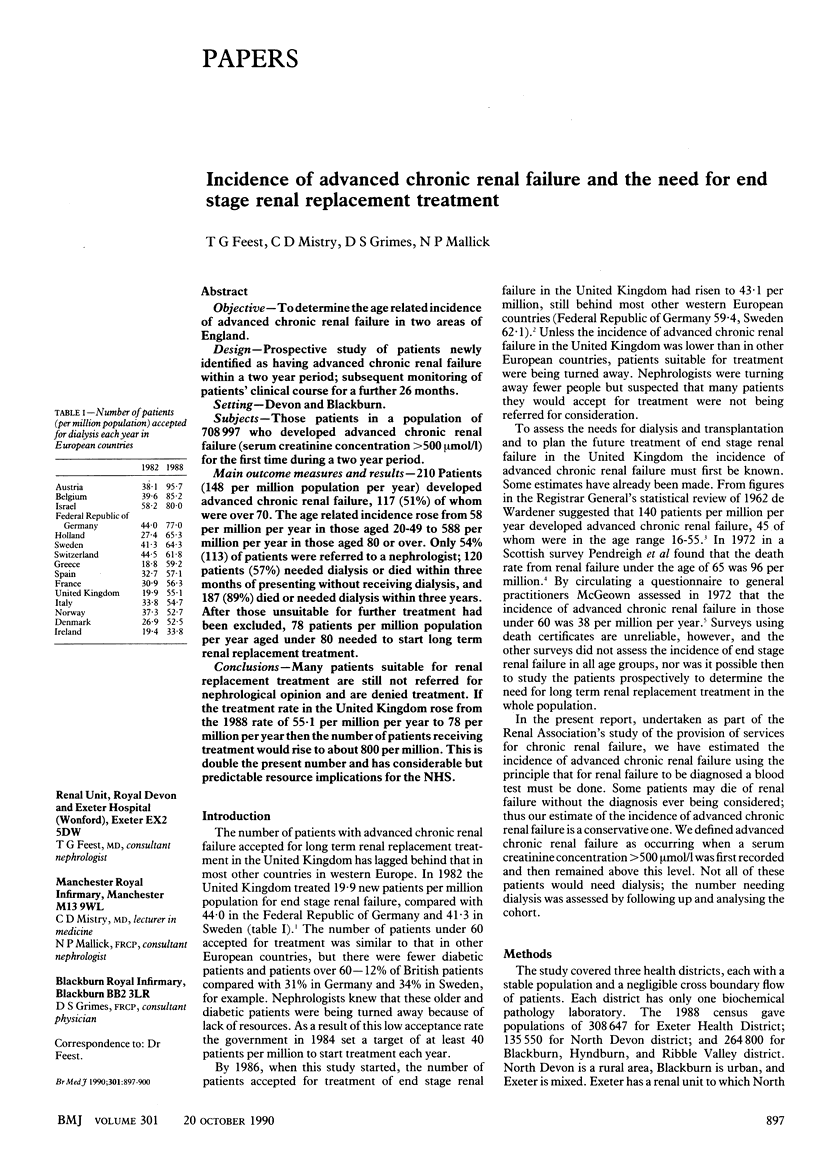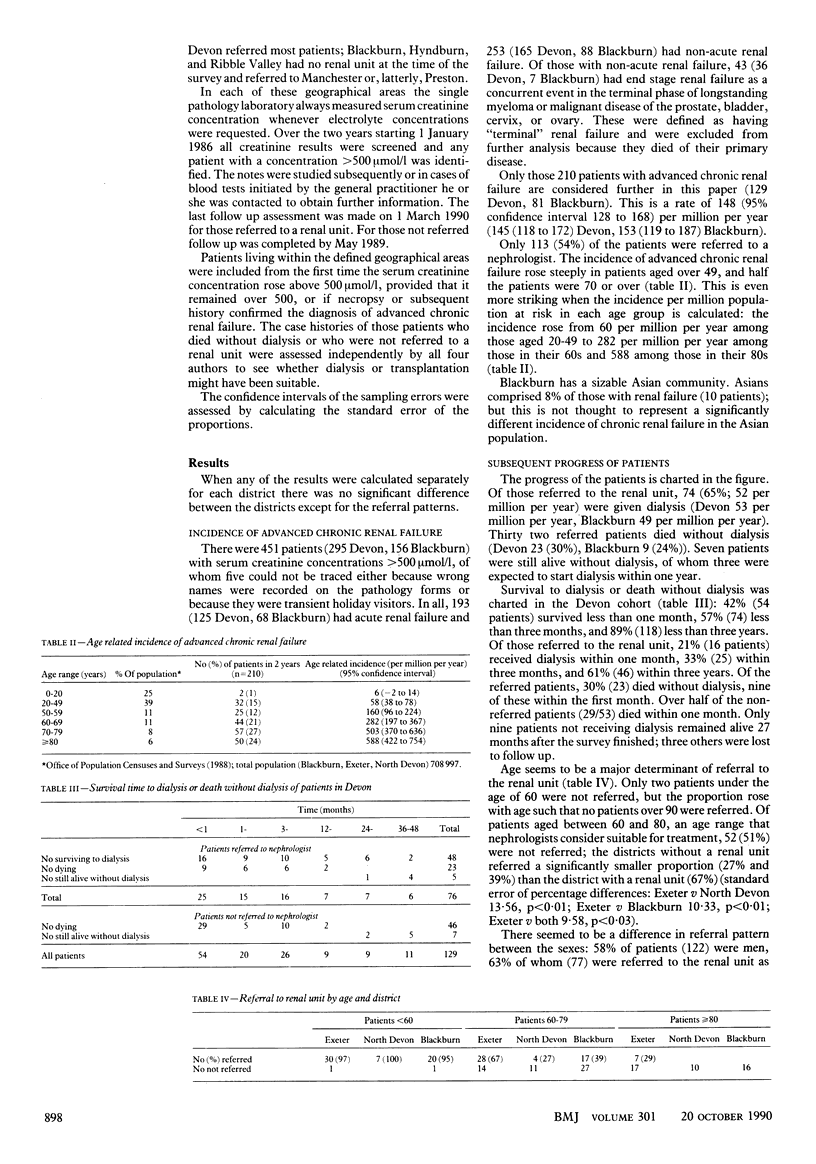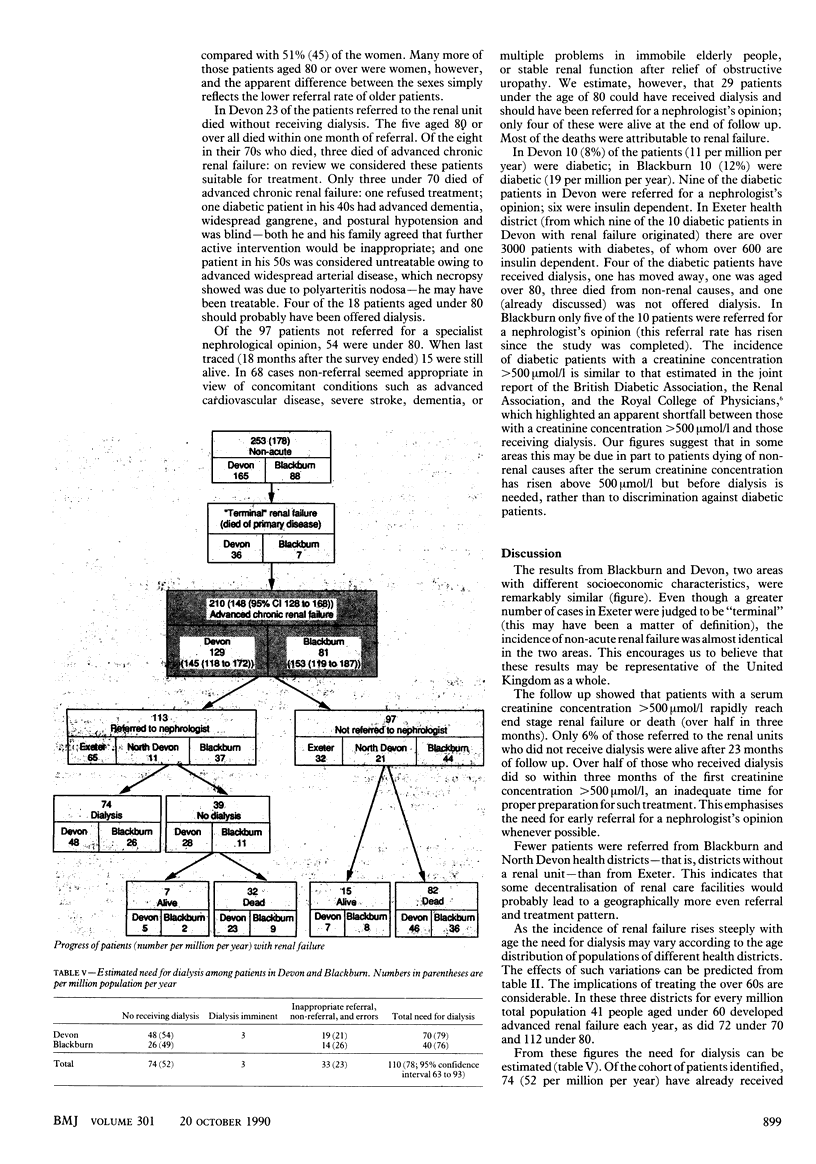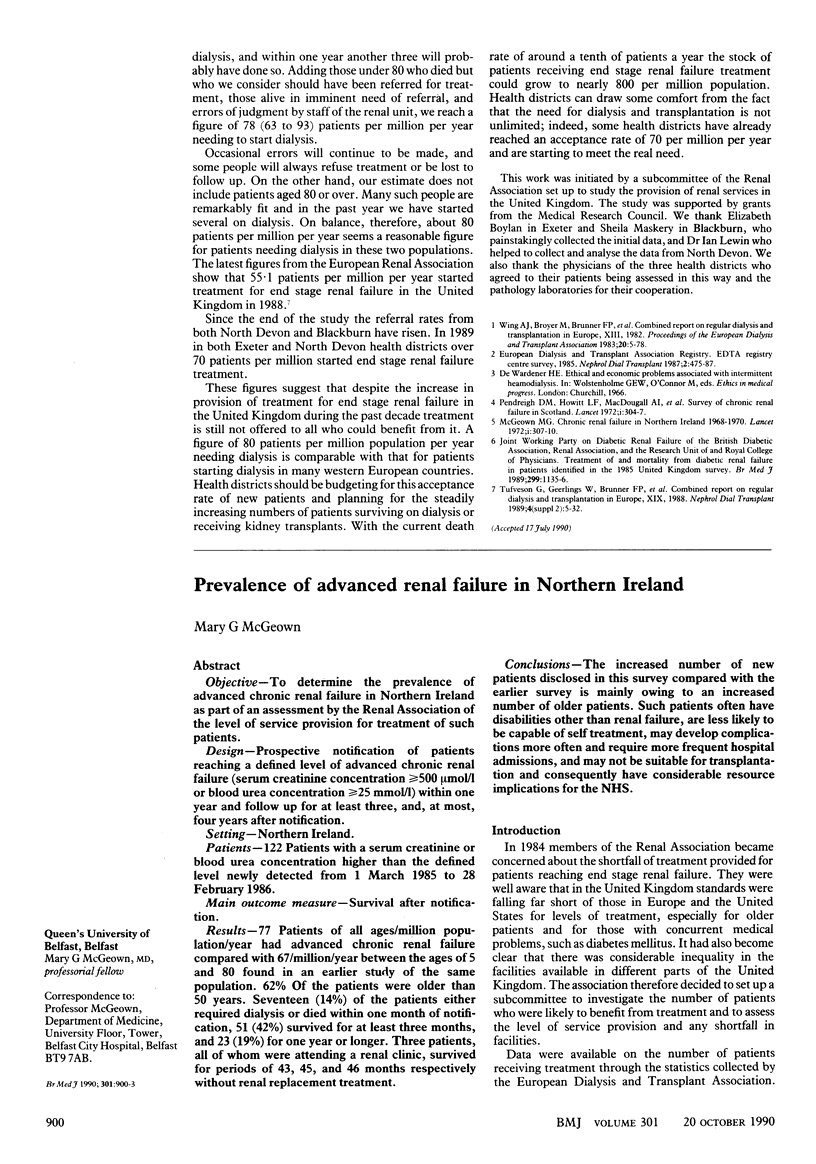Abstract
OBJECTIVE--To determine the age related incidence of advanced chronic renal failure in two areas of England. DESIGN--Prospective study of patients newly identified as having advanced chronic renal failure within a two year period; subsequent monitoring of patients' clinical course for a further 26 months. SETTING--Devon and Blackburn. SUBJECTS--Those patients in a population of 708,997 who developed advanced chronic renal failure (serum creatinine concentration greater than 500 mumol/l) for the first time during a two year period. MAIN OUTCOME MEASURES AND RESULTS--210 Patients (148 per million population per year) developed advanced chronic renal failure, 117 (51%) of whom were over 70. The age related incidence rose from 58 per million per year in those aged 20-49 to 588 per million per year in those aged 80 or over. Only 54% (113) of patients were referred to a nephrologist; 120 patients (57%) needed dialysis or died within three months of presenting without receiving dialysis, and 187 (89%) died or needed dialysis within three years. After those unsuitable for further treatment had been excluded, 78 patients per million population per year aged under 80 needed to start long term renal replacement treatment. CONCLUSIONS--Many patients suitable for renal replacement treatment are still not referred for nephrological opinion and are denied treatment. If the treatment rate in the United Kingdom rose from the 1988 rate of 55.1 per million per year to 78 per million per year then the number of patients receiving treatment would rise to about 800 per million. This is double the present number and has considerable but predictable resource implications for the NHS.
Full text
PDF



Selected References
These references are in PubMed. This may not be the complete list of references from this article.
- Fassbinder W., Brunner F. P., Brynger H., Ehrich J. H., Geerlings W., Raine A. E., Rizzoni G., Selwood N. H., Tufveson G., Wing A. J. Combined report on regular dialysis and transplantation in Europe, XX, 1989. Nephrol Dial Transplant. 1991;6 (Suppl 1):5–35. [PubMed] [Google Scholar]
- Feest T. G., Mistry C. D., Grimes D. S., Mallick N. P. Incidence of advanced chronic renal failure and the need for end stage renal replacement treatment. BMJ. 1990 Oct 20;301(6757):897–900. doi: 10.1136/bmj.301.6757.897. [DOI] [PMC free article] [PubMed] [Google Scholar]
- McGeown M. G. Chronic renal failure in Northern Ireland, 1968-70. A prospective survey. Lancet. 1972 Feb 5;1(7745):307–310. doi: 10.1016/s0140-6736(72)90305-4. [DOI] [PubMed] [Google Scholar]
- Pendreigh D. M., Howitt L. F., Macdougall A. J., Robson J. S., Heasman M. A., Kennedy A. C., MacLeod M., Stewart W. K. Survey of chronic renal failure in Scotland. Lancet. 1972 Feb 5;1(7745):304–307. doi: 10.1016/s0140-6736(72)90304-2. [DOI] [PubMed] [Google Scholar]


